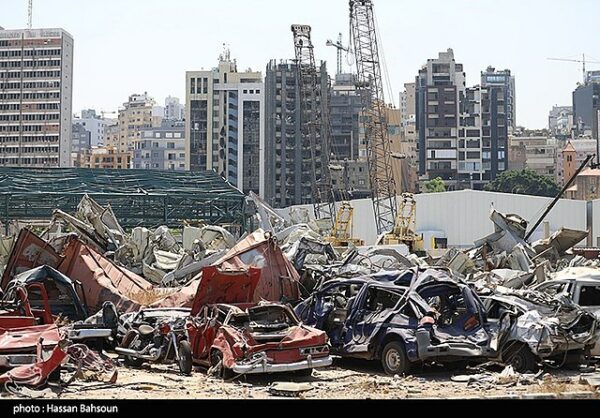n August 4, 2020, Beirut, the capital of Lebanon, experienced a catastrophic explosion at its port, marking one of the most devastating non-nuclear explosions in history. This tragic event stemmed from the detonation of approximately 2,750 tons of ammonium nitrate, a substance typically used in fertilizers and explosives, which had been improperly stored in a warehouse for years.
The ammonium nitrate arrived in Beirut in 2013 aboard the MV Rhosus, a Moldovan-flagged cargo ship. After the ship’s owners abandoned it, Lebanese authorities seized the dangerous cargo and stored it in a port warehouse. Despite multiple warnings from port officials and others about the hazardous nature of the material, no action was taken to secure it properly.
On the day of the explosion, a fire broke out in the warehouse containing the ammonium nitrate. Although the exact cause of the fire remains uncertain, it rapidly ignited the stored chemicals, leading to an enormous explosion. The blast was so powerful it was felt over 150 miles away in Cyprus and registered as a 3.3 magnitude earthquake, creating a massive mushroom cloud over Beirut.
The immediate aftermath was chaotic and tragic. Over 200 people lost their lives, more than 6,000 were injured, and approximately 300,000 were rendered homeless. The explosion caused an estimated $15 billion in property damage, devastating large parts of the city. Buildings within a two-mile radius suffered severe damage or were completely destroyed, including hospitals, schools, and residential areas. The port, a vital hub for Lebanon’s economy, was left in ruins, worsening the country’s already severe economic crisis.
The human toll was immense, with countless lives shattered and families torn apart. Hospitals, already strained by the COVID-19 pandemic, were overwhelmed by the influx of casualties. Emergency responders and volunteers worked tirelessly to rescue survivors from the rubble and provide medical care. The Lebanese Red Cross described the situation as “unprecedented” and urgently called for international assistance.
The explosion triggered a wave of grief and anger among the Lebanese public. Protests erupted nationwide, with citizens demanding accountability from a government they perceived as corrupt and negligent. The incident exposed deep-seated issues of mismanagement and corruption within the Lebanese political system. Although many officials resigned or were dismissed in the aftermath, for many Lebanese, these actions were insufficient.
The international community responded with an outpouring of support. Countries worldwide sent aid in the form of medical supplies, food, and financial assistance. Organizations like the United Nations and the European Union pledged millions of dollars to help with recovery efforts. However, there were calls for these funds to be managed by international bodies to ensure they reached those in need, reflecting widespread mistrust in Lebanon’s political leadership.
Rebuilding Beirut is a monumental task that continues to this day. The explosion highlighted the resilience and solidarity of the Lebanese people but also underscored the urgent need for systemic reforms. As Lebanon grapples with this tragedy, it faces the challenge of not only rebuilding its capital city but also addressing the underlying issues that led to such a catastrophic event.





